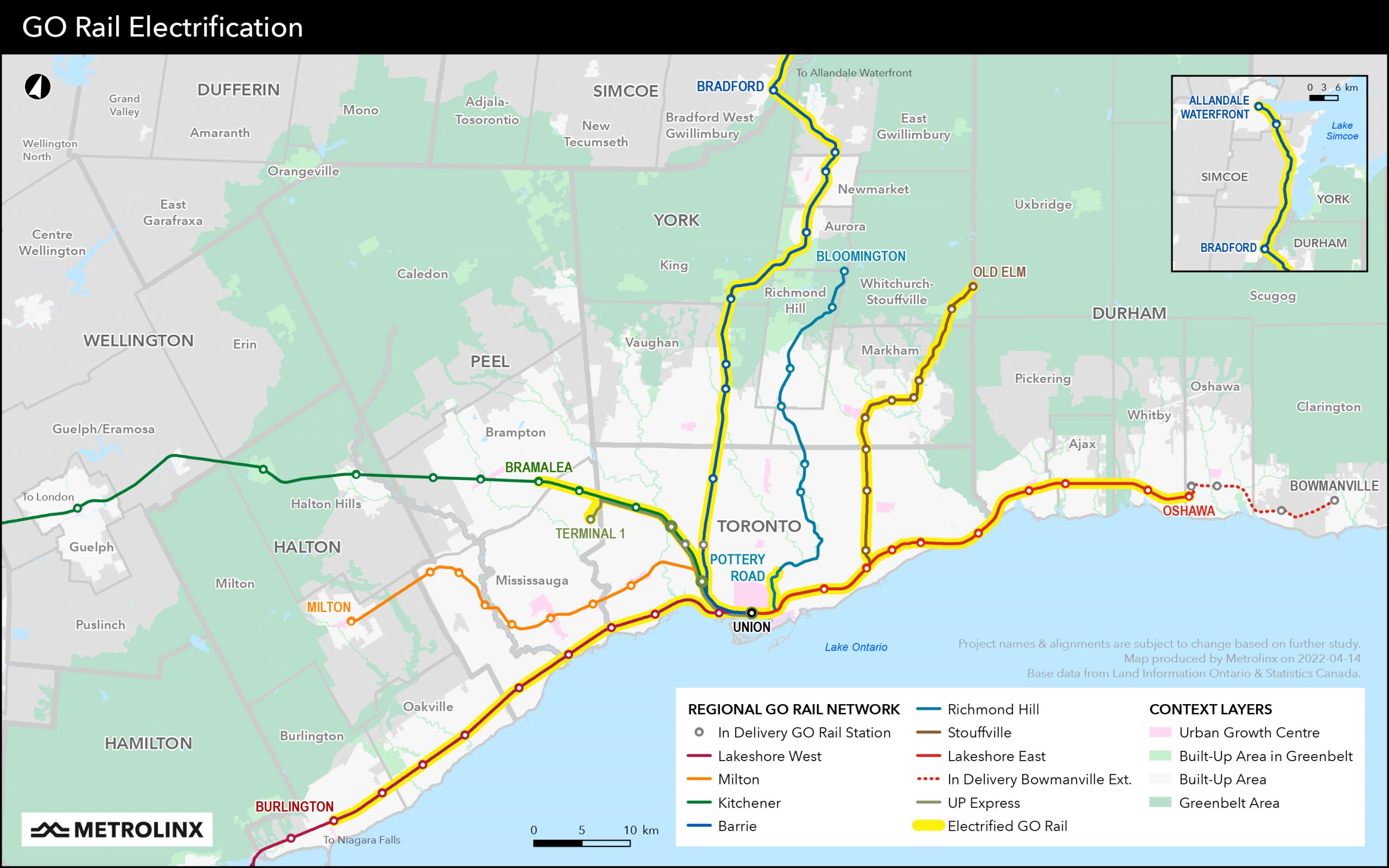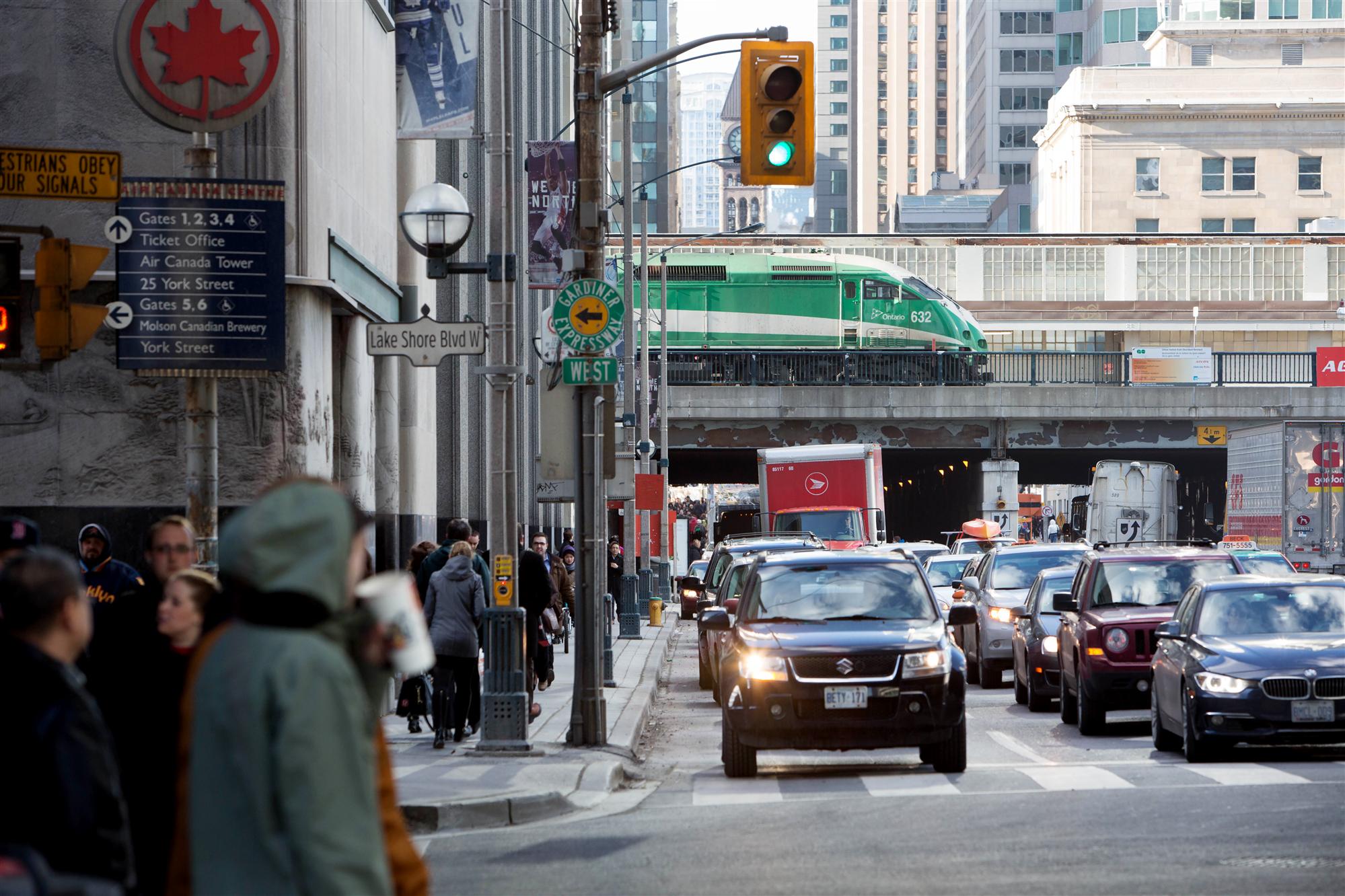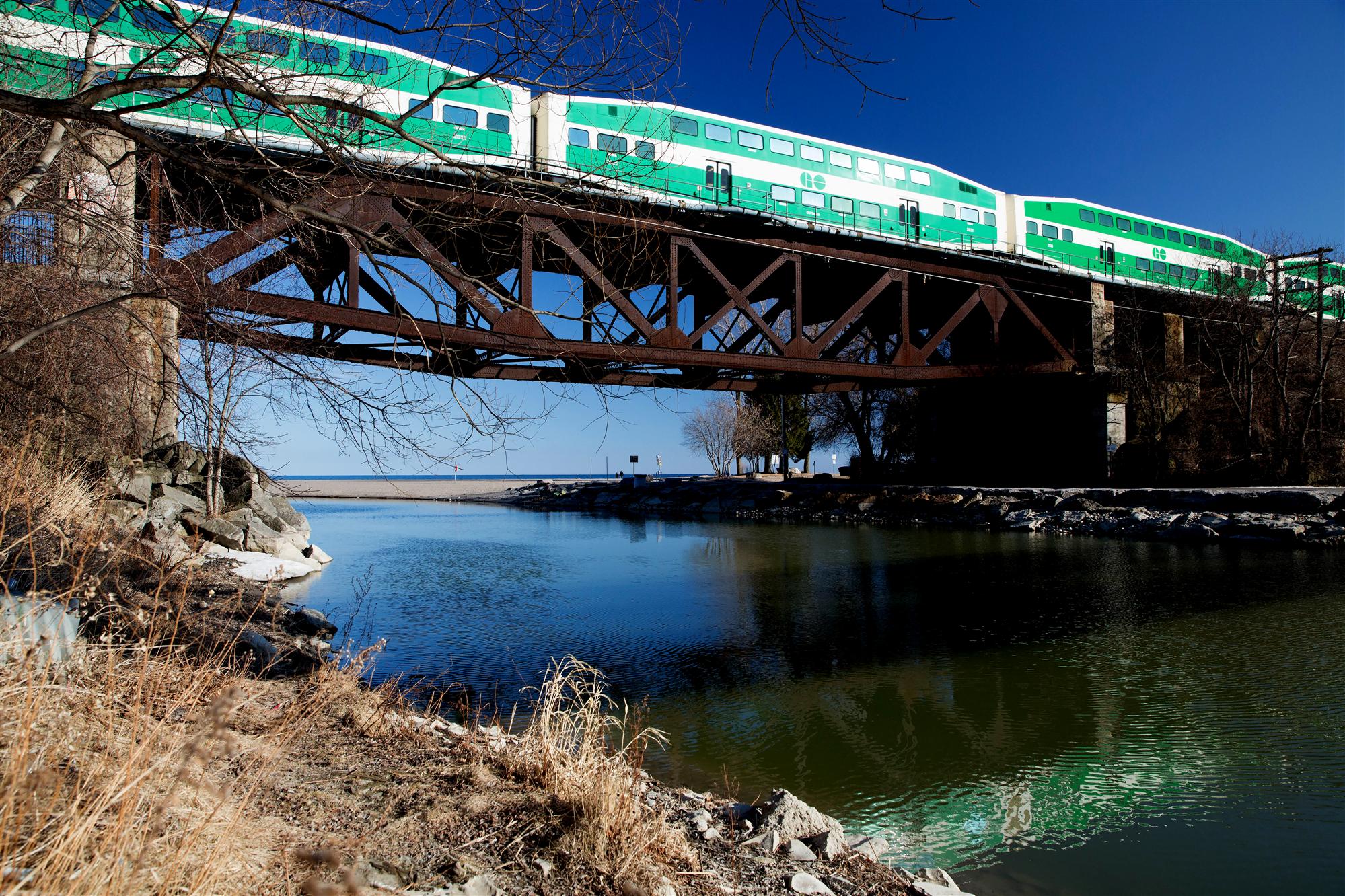An order worth billions in Toronto: a milestone for the climate and the decarbonization of transport
Deutsche Bahn International Operations, part of the DB E.C.O. Group, is taking on the planning, operations and maintenance of passenger rail transport in the Toronto metropolitan region. The 450-km rail network is to be completely modernized and expanded. This is the most important transport project in Canadian history, and it offers a wealth of opportunities for German rail. This shows that the expertise of the DB E.C.O. Group is in high demand around the world.

Following an intensive tender and bidding process of several years, Deutsche Bahn International Operations GmbHsigned the relevant contracts on April 14, 2022 as a leading partner in a joint venture. DB IO was thus tasked with the planning, operations, and maintenance of rail passenger transport for the city of Toronto, whose residents number in the millions, and for the surrounding area in the Province of Ontario. With an operating and maintenance volume in the double-digit billions, this is one of the largest projects of Deutsche Bahn (DB).
“This is the biggest success in the history of the DB E.C.O. Group. We are successfully exporting German expertise on rail and climate protection,” explains Niko Warbanoff, Chairman of the Management Board of the DB E.C.O. Group. Canada is also investing several billion euros in the project, which heralds a new era of rail transport on the North American continent. The Aecon Group Inc. from Canada and the FCC Group from Spain are responsible for building the infrastructure. Alstom S.A., a French company, is supplying the signaling systems and rolling stock. said Warbanoff.
Right after the contract is signed, the project will kick off with preparations for operations and an expansion of the rail network. State-of-the-art digitalization and automation technology will be brought to bear. After the initial two-year development phase, the network will have significantly more capacity and performance. Throughout the project, the network will be expanded from 450 km to a total length of 680 km. Going forward, the system will carry 200 million passengers a year, nearly tripling its current capacity of 70 million passengers.
Toronto is making this immense investment in regional rail transport to ready itself for robust population growth. At present, six million residents call the city’s metropolitan region home. Over the next two decades, that number is expected to swell to 12 million. Even today, snarled traffic on the roads saps the economy to the tune of 15 billion Canadian dollars in lost productivity every year. Going forward, more capacity on the rails should translate into 145,000 fewer cars taking to the roads every day. The climate will also reap the benefits: forecasts have shown 70% less emissions per passenger per trip.
Contact
More information
 The rail network is to be completely modernized and expanded with 205km of new track and 687km of electrified track.
The rail network is to be completely modernized and expanded with 205km of new track and 687km of electrified track.The rail network is to be completely modernized and expanded with 205km of new track and 687km of electrified track.  The Canadian metropolitan area of Toronto is one of the busiest regions in the world.
The Canadian metropolitan area of Toronto is one of the busiest regions in the world.The Canadian metropolitan area of Toronto is one of the busiest regions in the world.  The mass transit network in Toronto and the province of Ontario is being completely redesigned.
The mass transit network in Toronto and the province of Ontario is being completely redesigned.The mass transit network in Toronto and the province of Ontario is being completely redesigned.  In the future, 145,000 fewer cars will be on the roads every day.
In the future, 145,000 fewer cars will be on the roads every day.In the future, 145,000 fewer cars will be on the roads every day.
Bolstering rail transport in Germany
“This transport project is considered the most significant in Canada’s history. Rail transport around the megacity of Toronto is being redesigned from the ground up. This contract is unique. Nothing in Germany or Europe compares to it. The massive technology and knowledge transfer and the experience we gain in Canada will directly benefit rail in Germany. The profits will also flow into our German network. This international contract will allow us to bolster rail transport in Germany,” explains DB Board Member for Infrastructure Ronald Pofalla.
Slated to run for 25 years and situated at a hub of one of the world’s busiest regions, the project will serve as a model for the German transport system. The knowledge generated from ongoing operations will be continuously shared with all other DB units and used for the successful implementation of projects in Germany, such as the modernization and digitalization of rail hubs in numerous major German cities and metropolitan regions.
Profits generated in Canada will go toward strengthening rail in Germany. For as long as the project runs, the significant surpluses will be reinvested directly in accelerating the decarbonization of transport in Germany. Together with the investment programs the German government has already announced and with initiatives such as “Digital Rail for Germany,” this will significantly advance the sustainable modernization of rail and support both maintenance and construction of new infrastructure.
Reaching global climate targets through international partnerships
At the same time, DB E.C.O. Group is making a contribution to global climate protection: “We can achieve our climate targets as a global community only by working together. Especially if we forge partnerships, learn from one other, and help each other weather this transformation,” says Niko Warbanoff.
Climate protection is a transnational challenge and cannot be reduced to its national component. The DB E.C.O. project in Canada proves that even today, Germany is already a nation that exports sustainable expertise. This means that climate protection offers a genuine opportunity for German businesses and society.





